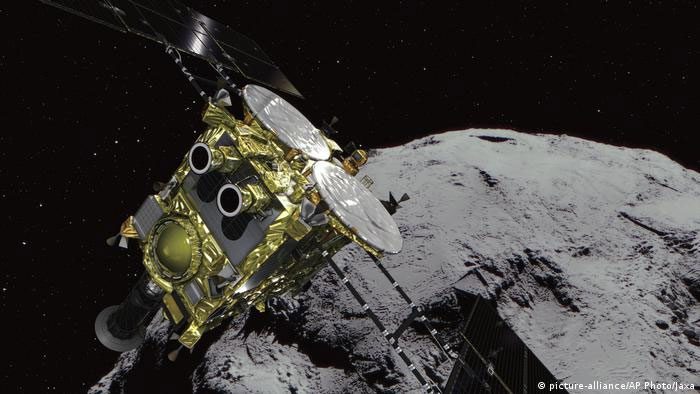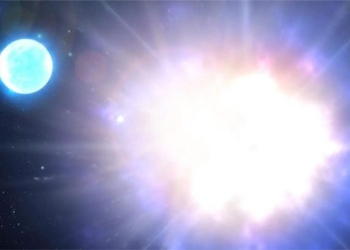According to a Japanese official, the amino acid samples discovered are very important for living organisms and may contain clues for scientists to understand the origin of life.

Japan’s Hayabusa-2 spacecraft carrying a sample container from asteroid Ryugu. (Source: JAXA)
According to an official from the Ministry of Education, the amino acid samples discovered are very important for living organisms and may contain clues for scientists to understand the origin of life.
After six years of space exploration, in December 2020, Japan’s Hayabusa-2 spacecraft returned to Earth carrying a sample container from asteroid Ryugu. The total weight of the material samples collected by Hayabusa-2 from the asteroid is over 5.4 grams.
Previously, in 2014, Hayabusa-2 was launched into space to collect samples from asteroid Ryugu, which is located 300 million kilometers from Earth. It took Hayabusa-2 four years to reach Ryugu. The spacecraft spent one and a half years at this asteroid to observe and collect samples before sending them back to Earth.
In addition to exploring asteroid Ryugu, Hayabusa-2 has also expanded its mission to explore two new asteroids.





















































